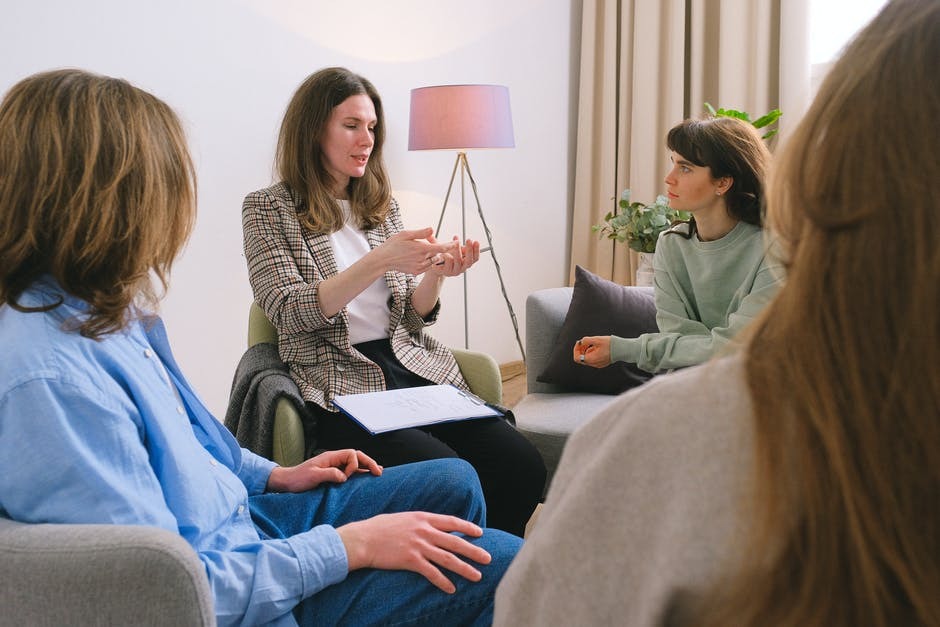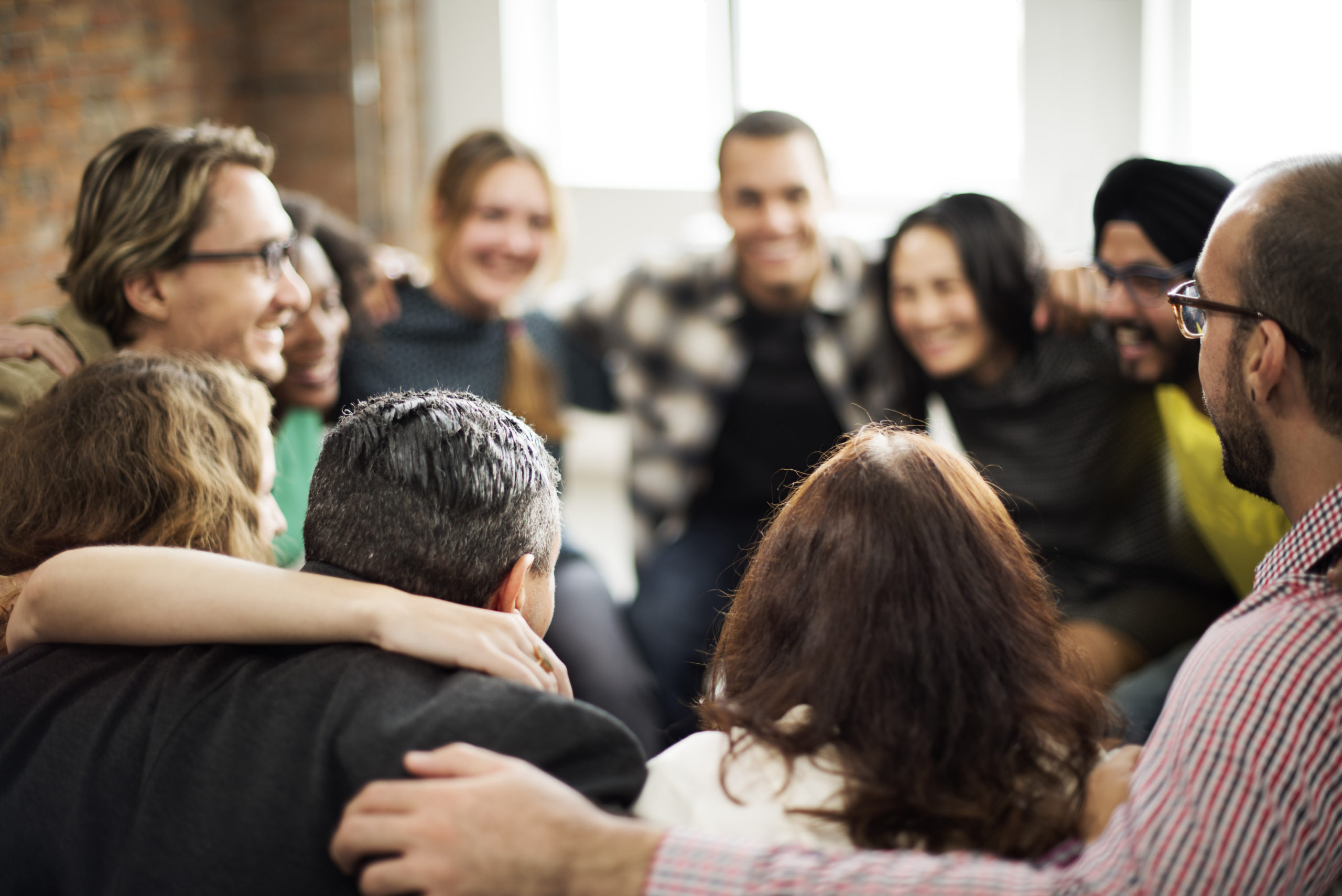Group healing can be essential for building and maintaining healthy social relationships during and after treatment. At Newport Beach Recovery Center, we tailor every group to ensure the participants feel comfortable with each other and the subjects covered relate to their personal life experiences. Healing within a group can be highly rewarding. Many people continue to use the tools they learn in group therapy for the rest of their lives.
Peer support can help clients feel more comfortable disclosing vulnerable details of their substance misuse. Group therapy provides a safe space to improve communication, self-expression, self-awareness, and social skills. Interpersonal interactions can also improve self-confidence and problem-solving skills. According to Substance Abuse and Rehabilitation, “Peer support has been shown to be a key component of many existing addiction treatment and recovery approaches such as the community reinforcement approach, therapeutic communities, and 12-step programs.” The Newport Beach Recovery Center care team tailors all group activities to provide clients with the tools they need to heal from substance use disorder (SUD) and co-occurring conditions. We also encourage clients in outpatient care to join self-help or 12-Step groups to provide additional support.
Outdoor Therapy Groups at Newport Beach Recovery Center
Our treatment facility is near the beach, making it an ideal setting for outdoor groups and healing recreational activities. The change of scenery can provide clients with another perspective and facilitate positive social interactions. We offer walking groups, relaxing outdoor therapy, and even group sessions at a nearby coffee shop.
Groups held outdoors can include aspects of the following:
- Psychodrama
- Experiential therapy
- Cognitive-behavioral therapy (CBT)
- Dialectical behavior therapy (DBT)
- Motivational Interviewing (MI)
- Guided conversations
- Recreational therapy
- Adventure therapy
A small coffee shop across the street from our facility offers a private outdoor area where groups can sit comfortably with a favorite drink and informally discuss their thoughts and feelings. Maintaining client privacy is a top priority, and we never conduct group therapy in areas where the public may overhear.
How We Personalized the Experience
We listen to what each group has to say about ways we can improve sessions and activities they would enjoy. Personal preferences, including hiking, surfing, whale watching, and day outings, can provide clients with positive social experiences during treatment. We believe that it is vital to get out and participate in relaxing activities that strengthen social bonds and improve life skills, including:
- Problem-solving
- Communication
- Interpersonal relationships
- Social boundaries
Personalizing group activities allow us to make the experience more engaging for each program participant. We construct groups around clients with similar issues or life experiences to ensure the content of each session remains relevant to all participants. Clients often feel more confident and comfortable in personalized groups.
Group Activities Increase Therapy Engagement
Group activities provide an excellent opportunity for clients to process issues related to recovery from a new perspective. Healing from trauma and the effects of SUD takes time and a willingness to engage in therapy. Many people find it easier to express themselves and communicate more effectively during group sessions that center around topics and exercises they find interesting.
Several examples of recreational activities we use to facilitate greater group involvement include:
- Whale watching
- Surfing
- Hiking
- Walking
- Meditation
- Day events
- Music and art
Groups provide a safe space where clients can improve self-regulation and self-efficacy. In addition to including holistic and community activities in treatment, we also have gender-specific and trauma groups. Our facility uses a trauma-informed approach to care. We believe positive peer interactions are an essential tool in trauma recovery, and people with similar traumas can help one another find acceptance, closure, motivation, and hope for the future.
Taking Advantage of Community Support Groups
Support groups are an excellent tool for healing. Clients in partial hospitalization (PHP), intensive outpatient (IOP), outpatient, and sober living programs often find inspiration within the welcoming community of self-help and 12-Step groups. We encourage clients to use local resources to heal from the damaging effect of addiction. Group therapy and support groups can make it easier to overcome challenges faced during the treatment and recovery process.
Personalized Group Therapy Reduces the Risk of Relapse
Humans are naturally social creatures. Group healing is an important tool that provides people in recovery with access to peers they can rely on to provide accountability, encouragement, and a safe space for self-expression. Personalized group therapy ensures that clients develop life skills relevant to their recovery experience, decreasing the risk of relapse during and after treatment. Group therapy and support groups are also essential to aftercare planning for many clients. Our care team ensures clients have information about local therapists and peer-led groups. We also provide referrals.
Substance misuse affects all areas of a person’s life and can lead to reduced social skills, emotional instability, and social isolation. We use group therapy and community activities to help you work through problem areas and develop essential life skills that can enhance treatment. Group activities can facilitate more beneficial interpersonal relationships. Everyone in recovery can benefit from some form of group therapy. At Newport Beach Recovery Center, we offer a wide range of groups where you can learn coping skills and other important tools for recovery. Everyone can benefit from spending time with peers in the recovery community who share common interests and lived experiences. We offer evidence-based and alternate groups, including music and art therapy, talk therapy, and gender-specific groups. To learn more about our facility and the programs we offer, call our office today at (888) 850-0363. You are not alone, and we can help you heal.






